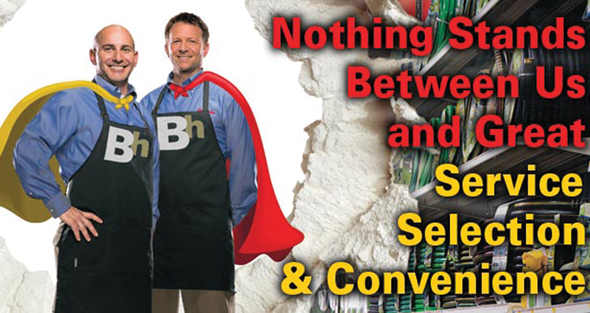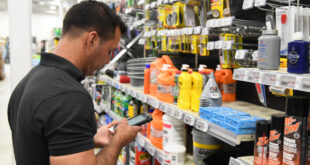Nestled in Boston’s historic Beacon Hill neighborhood, a small, independent hardware store named Charles Street Supply Company attracts hordes of loyal customers. What’s its secret? The store knows its customers and anticipates their needs. It has built a strong brand identity that enables it to thrive in the face of competition from big-box stores.
What’s a Brand?
Your brand is what your business means to your customers. It’s not a logo or a slogan. It’s a feeling about your store that customers share.
Charles Street Supply promises customers “experienced staff” who can “help you solve your home maintenance and repair challenges.” It also promises “a full line of tools and home goods.”
It’s no empty promise. Customers rave about the store’s amazing selection and knowledgeable customer service. Says one reviewer on Yelp, “You can’t walk in without finding something worth buying.”
Another adds, “They always help me get exactly what I need, even when I’m not really sure what that is.”
Building Your Brand will Build Your Sales
Independent hardware and home center retailers can drive sales by building their own unique brand identities. Strong, independent brands can thrive under the supportive halo of a co-op parent, or maybe a store wants to fly its own flag without a national brand.
Creating a strong brand isn’t difficult, but it takes a coordinated effort. Store managers must dedicate not only themselves, but their sales staff as well to the task. Salespeople represent the face of your brand. Their knowledge and attitude shapes customers’ perceptions. Plus, they can support your brand-building effort by scouting out information about customers.
Know Your Customer
The first step to building a brand is getting to know your customers. What do customers really want when they enter your store?
Charles Street Supply packs its aisles with merchandise that its urban customers want and need. One customer appreciated the selection of pushcarts to help city dwellers without cars transport groceries home. Another noticed that umbrellas were always up front to help pedestrians caught in a sudden downpour.
Talk to your customers. Take note of who they are and what they seek. Are they apartment tenants or homeowners? Parents or students? Do they value form over function, or vice versa? Use their responses to extend your product offering into new categories or reshape the merchandise mix on your shelves.
Housewares, small appliances and even toys and pet products could draw customers to your store. The most successful retailers offer a range of products that accurately anticipate customer needs.
Ask Why
It’s important to question not just what customers are seeking, but why they seek it. D-I-Y customers may shop for a variety of reasons; chiefly to repair, replace or remodel. Understanding why they’re shopping can help you help them. Your expert advice could save them time or ensure that a job is done right. Benefits like that keep them coming back.
What’s more, helping a customer with a small fix-it job could lead to a larger one. Say a customer is on a quest to fix a sink. Your sales staff asks what’s wrong with the sink and offers a menu of options to fix it, including replacing the sink altogether. The customer may decide that replacing the sink is the best choice. And that choice, in turn, could lead to a need for new faucets or a desire to remodel the bathroom. For you, that translates into sales across a broad range of categories.
It’s Not Just About Price
One customer dropped into Charles Street Supply seeking a special wrench to remove a bike pedal. The sales staff knew exactly the wrench to recommend and let the customer borrow it because it wasn’t sold separately. In a review on Yelp, the customer vowed, “I’m going to them for everything from now on.”
 Hardware Retailing The Industry's Source for Insights and Information
Hardware Retailing The Industry's Source for Insights and Information








